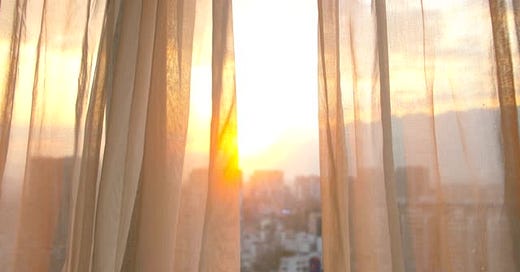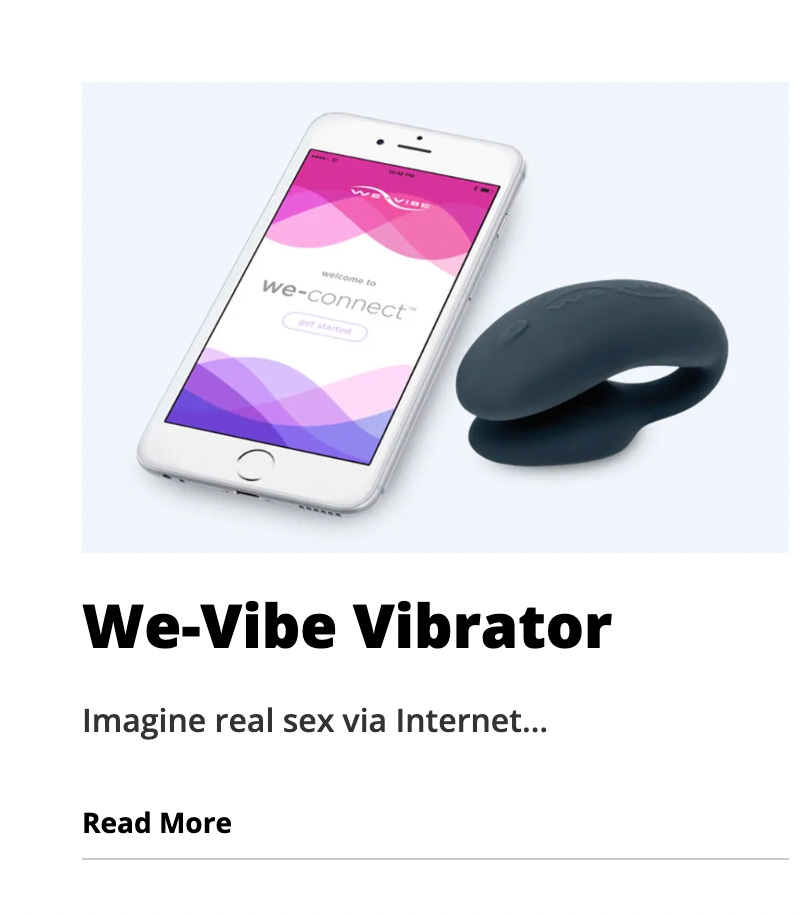Edition #132: Six Simple Pleasures
Plus, a conversation with Rihanna, how awe can improve your health, and the museum of failure
A Note From the Editor
Last summer, I was lazing around an old monastery converted into a beautiful villa situated on a small vineyard in rural Italy. I spent my days reading, crying, and sitting down at the communal table for long, excessive mealtimes. One of the books I read during this period was called “Last Summer in the City,” a novel set in Rome in which the narrator, Leo, finds himself perpetually stuck in his head, chasing an impossible love interest and unable to drum up the motivation to do anything useful. It was a profound story, simple and sad and well-written. In one passage the unreachable love interest, ever quippy and clever, asks the narrator a simple question:
“Have you ever thought of how many pleasures progress has deprived us of?”
I haven’t stopped thinking about the notion since. In our world, progress is king. It is the hallmark of a healthy business and a thriving life; forward movement, upward mobility, efficiency valued above all else. At the same time, progress has robbed us of the virtue of simplicity. Progress is a circadian rhythm alarm clock; simplicity is letting your body rise with the sun. Progress is being constantly connected to our tiny handheld computers, enabling us to be available at all times while simultaneously creating conditions that leave us more disconnected from the physical world than ever before. Simplicity is, or was, having to coordinate a time and place in advance in order to see a person; having to work off of blind faith that they would arrive there when they said they would at the scheduled time.
We didn’t get to choose the decade or conditions in which we were born, and the only thing worse than dreaming about the impossibility of time travel is having an overly romantic notion of the past—it was better, back then. Things were easier! Life was simple! Still, it is hard to resist this temptation. I’ve found myself daydreaming of living in another decade at various times in recent years when I’ve felt isolated; when the pressures of existing in an ultra-connected, cutthroat capitalist landscape have scraped me to the bone.
At those disconnected times, my visceral reaction is to buy more stuff. You’ve been looking ugly, you need new clothes or a facial. You need shoes that aren’t so beat up. Silk pajamas! A folding bike! A decorative teapot! Any personal lack can be solved, it seems, with the purchase of a product. A fabricated problem with a fabricated solution—not of my own making, simply adopted from the environment in which I’ve lived. When I feel bad and my reaction is to buy things, I know the system is working on me at a deep, subconscious level.
Yet lately, the system has ceased to work on me because I have settled into a different sort of environment. When the aforementioned passage about progress robbing us of pleasure popped into my mind the other day, I had an entirely different understanding of it than I did when I initially read it last summer.
“Oh, sure. Drinking milk from glass bottles, for instance.”
“Yes,” she said. “That’s not bad. What else?”
My suggestion was leafing through books without having to take off the plastic wrapper, to which she proposed blowing up paper bags, and I said slicing ham by hand, and she said walking on rubber soles and breaking glass decorations on the Christmas tree. When I stumped her with the smell of old leather armchairs, she changed the subject.
Here in Costa Rica, my life is more simple. I don’t care too deeply about my clothes; I don’t analyze what message a particular outfit might send when entering a new social situation. Also, the big toenail on my left foot recently fell off. It looks decrepit and my toes are always exposed here, yet I haven’t felt adequately self-conscious about it, even at the fancy party I went to last week.
In terms of pure progress, this place falls far behind New York. The infrastructure is lacking, we can’t flush toilet paper, the town occasionally runs out of water, and the waste management system is concerning, yet simple pleasures abound. Pleasure is the currency of the place and it requires no fixed cost. It isn’t a $100 Tuesday night dinner, but a gentle ombre sunset that makes your jaw drop.
I’ve been considering the various simple pleasures I’ve noticed as of late. They haven’t all exclusively happened here—some I’ve experienced in New York and elsewhere—but I’ve had more time and space to notice them, to consider them. I’m pleased to say none require money, status, or accolades of any sort; just a human body and a heart. Here are my current favorites, in no particular order.
Making strong eye contact with a stranger; flirting in real life. If you’ve been in the dating pool for the past five to ten years, you’ve likely become acquainted with the notion of online dating. We’ve defended its validity—You can meet someone you love online, my sister did! My best friend did!— we’ve accepted it as a non-taboo, very regular, and efficient way to meet a potential spouse. But I have to say, there is nothing like moving your body on a dance floor, holding eye contact with a stranger for just long enough that your corneas give them permission to approach, to move closer. There is no substitute for the suspended mid-air-before-a-roller-coaster-drop feeling you get in the pit of your stomach when you have a proper crush on a stranger. The thrill of it; you haven’t had the chance to vet them. You don’t know what their ex looks like or where they grew up. The not-knowing, the reliance upon gathering information in real life, with real interactions every time, makes it all the more riveting.
Opening the blinds, closing the blinds. I cannot overstate the joy of a dramatic opening-of-the-blinds-moment enough. Electric blinds? Blackout shades? Absolutely not. Give me a proper, heavy curtain that I can throw open with gusto upon climbing out of bed. In New York, I used to make an “AHHHH” (imagine angels singing) sound each morning when I opened my curtains. If I happened to have a lover or friend sleep over and they happened to crawl out of bed before me, I would request that they throw open the curtain and make this noise, too—the sun streaming into a formerly dark room deserves a proper moment of pomp and circumstance. I equally love drawing the shades at night and creating a DIY turndown service for myself in my home. When the curtains close, I am stewarding in the evening. I am lighting a candle, saying goodbye to the outside world, and shutting myself in for rest.
Not speaking for the first few hours of each day. We need more silence in our lives. As a former chattery, must-fill-the-silence type, I can attest to the liberation of finally realizing every silence does not need to be filled, especially not in the mornings. A silent morning is a gift. Easing your way into the day, perhaps a few words exchanged to sort of necessary logistics, but nothing else. Silence also means not scrolling on the phone, watching videos, or being immersed in anything but the physical world in front of you. A silent, slow morning is a gift. Give it a try.
Being unaware of what time it is. There are only two situations in which I am or have been unaware of the time. The first was in New York when I would do phone-free Sundays—turning my phone off on Saturday evening and turning it back on Sunday evening. I’d spend the day meandering around the city, not adhering to any timed commitments, unsure of my place in the world without a digital tether. More recently, I’ve spent my mornings in the water surfing. I do not have a waterproof watch, so I never know the time while I’m out there. Sometimes I get out of the water, certain hours have passed only to discover it’s been 45 minutes, other times I’m shocked to see 2.5 hours have slipped by. Something happens to us when we stop tracking the time so carefully. Aflow, of sorts, a walking meditation. I love it.
Writing letters, receiving letters. There is no gift I’d rather receive than a handwritten letter. Not a card, not for any reason except the author wanting to put a pen to paper to describe something to me—the way they feel, something they saw, an experience they had. Give me loose-leaf paper torn straight from a notebook and smudged ink marks, give me doodles in the margins. Letters are romantic and thoughtful. They require a pause so many are unwilling to take in today’s world, and a full immersion of attention while reading or writing. Letters are an entire love language.
Memorizing things, like poems or phone numbers. Memorization has no real function these days aside from when you’re studying for a test, yet it is something of a lost art. Have you ever had a friend or lover recite your phone number by heart? The flutter of knowing someone has committed this random string of digits to memory is touching. If you’ve ever heard someone recite a poem by memory, the result is similar—awe-inspiring, strangely impressive. The moment I knew I was deeply in love, once, was lying on a plush hotel bed in a robe, listening to this poem recited from memory. It’s a beautiful thing because it is unnecessary, superfluous. The opposite of efficient or practical, as poetry generally is. But so lovely
Cheers, my dears, and as always, thank you for reading. I’m soon coming up on one year of launching the paid version of this newsletter and as such, I will be re-evaluating the structure of what is free and what is paywalled. In full candor, I have to figure out ways to make this space work for me as a full-time freelance writer who contributes several hours of time each week to this precious corner of the internet that I so love—another simple pleasure! If you’re not currently signed up for a paid subscription and you’re able to support, I hope you’ll consider it. I love writing this newsletter and I hope to keep it going for another year, another five!
And if it isn’t in your budget, consider sharing this edition with a friend and encouraging them to subscribe. I hope you have a lovely weekend. Try turning off your phone for a day, make yourself pancakes, blast a new playlist on your speaker.
Three Pieces of Content Worth Consuming
In Conversation: Rihanna. This is one of those older articles that I found via an internet rabbit hole. I was looking to see whether I could purchase the script for Slave Play online (you can) when I began doing a digital deep dive on my favorite playwright, Jeremy O’Harris, which led me to this interview he conducted with Rihanna back in 2019. Though I typically detest the question-and-answer format, I was willing to bend for these two artistic creative geniuses. I especially love the thought-provoking intro to the Q&A portion of the article.
The Bridge: A Poem. You can expect more poetry in this newsletter for 2023. Another simple joy I highly recommend: Poetry. It requires us to slow down, to read something more than once, to feel the weight of the words on our tongues. I hadn’t read this sweet, whimsical poem in a few months, and revisiting it gave me butterflies. I must also admit that last night I finished season 3 of one of the worst/best shows of the decade, Emily in Paris, which put me in a rather romantic mood. This poem helped to extend the sweet mood.
How A Bit of Awe Can Improve Your Health. This sweet piece felt on par with today’s essay. I like how the article defines awe as the “absence of self-preoccupation.” Awe does something magical to our brains: shutting down our inner monologues and jolting us fully into the present moment. Like most of life’s greatest experiences, cultivating awe is simple and costs nothing.
Perhaps You Should…Explore Some Entertaining Failures
I’m on a covert mission this year to change my relationship with failure. As a writer, I am going to fail and fail and fail—but as Lucille Clifton so eloquently puts it in one of her poems, “and these failures are my job.” In the spirit of celebrating failures, I bring you the Museum of Failure, a digital collection of various inventions that have failed throughout the years.
**Bonus Content** (Dog Photography Awards)
Cute dogs, cool landscapes, action shots…it’s all here.
Also, a hot take I agree with, we love a micro-prince, can’t get this little snippet out of my head, desperately want to eat these waffles, and the audacious realness of this sent me—is this just a New York thing? I must know.
A Quote From A Book You Should Read:
“She was like that, excited and delighted by little things, crossing her fingers before any remotely unpredictable event, like tasting a new flavor of ice cream, or dropping a letter in a mailbox.”
-Interpreter of Maladies by Jhumpa Lahiri
This newsletter is best served with a side of conversation, so drop your opinions, reflections, and thoughts in the comments below and let’s get to talking.
Or, share the most thought-provoking piece from today’s edition with someone you love, then call them up to discuss, debate, and percolate. As a wise woman once said, “Great minds discuss ideas.






